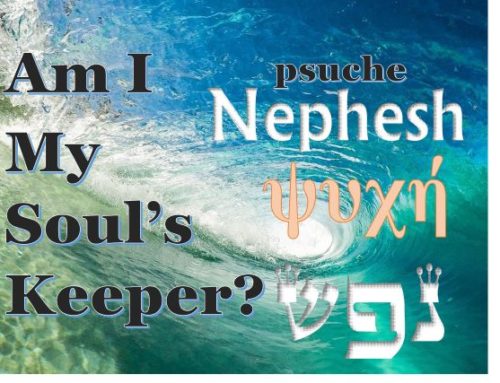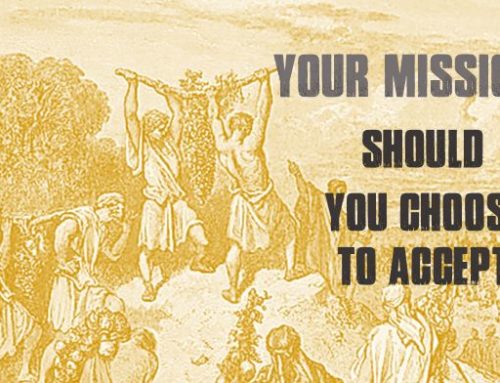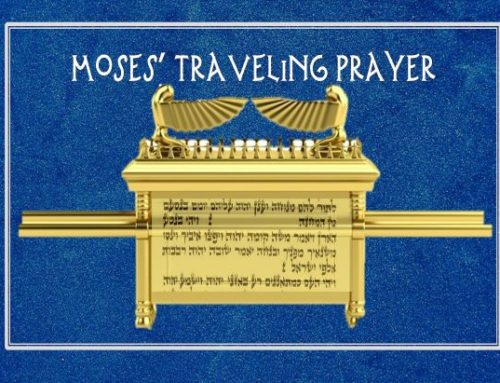Torah Portion Shemot (Exodus 1.1-6.1, Isaiah 27)
“Now these are the names of the children of Israel who came to Egypt; each man and his household came with Jacob.” Exodus 1.1 NKJV
We open our Torah Portion to a new book and a new year. The book of Exodus, called “Shemot” in Hebrew, means “Names”. It begins, “These are the names of the Children of Israel”. There is a powerful message in remembering a person. God, who named the stars, knows your name. The greatest curse that the Bible pronounces is for one’s name and memory to be blotted out. Therefore, it is not without design that the book called “Names” should purposely leave the antagonist Pharaoh nameless. Even today, in Jerusalem, I saw a billboard proclaiming such a curse on a local politician.
By the way, I would be remiss not to mention that there is one specific name listed among the seventy who went down to Egypt (Gen. 46.8-27) also listed among those who came out hundreds of years later. (Num. 26) Though most Christians never hear this name in Sunday School, it is famous in Israel. Could someone actually live through that entire length of momentous history, or did their name simply merit a second mention when recounting the Exodus?[1] (Comment if you know the name)
Shemot (Names / Exodus) speaks to our generation, as voices of dissent are silenced, and “big tech” erases the accounts of those with whom they disagree. It is not simply about an exodus. It speaks to memory and a time when Israel could be numbered on a list no larger than an average family reunion, a list the enemy wished to erase. Within a few generations, however, millions packed to leave Egypt. Famine could not silence them, and Pharaoh could not erase them for one powerful reason. God remembered them.
I. God remembered
“So God heard their groaning, and God remembered His covenant with Abraham, with Isaac, and with Jacob.” Exodus 2.24 NKJV
Recently, a news program did a story about a handful of people worldwide whose memory is so astounding, they remember exact details of every day. They remember the weather, their clothing, and even days of the week, and dates on the calendar. For some this is wonderful, for others, it brings sadness. The verse above says, “God remembered”. Does that imply that He had also forgotten? No, we are continually before Him. It means He remembered the time of deliverance had come. He remembered His covenant with Abraham. The prophecy of Israel’s sojourn in Egypt had come been completed. The beauty is that God remembered while many of the people had forgotten. God is not slack concerning His promises. Though we forget, He will be faithful.
As we have journeyed through the Torah Portions (Parashot) of Genesis we have seen many instances of God remembering. He remembered Noah tossed on the Ark (Gen. 8.1) He remembered Abraham before destroying Sodom. (Gen. 19.29) He remembered Rachel desperately wanting to conceive. (Gen. 30. 22) He remembers you! He remembers you because of His Covenant, having engraved you on the palms of Messiah’s hands.
“Yet I will not forget you. See, I have inscribed you on the palms of My hands; Your walls are continually before Me.” Is. 49.15-16 NKJV
II. God Saw and heard
“And the Lord said: “I have surely seen the oppression of My people who are in Egypt, and have heard their cry because of their taskmasters, for I know their sorrows….” Exodus 3.7 NKJV
The parallels between America and Egypt are numerous. A king arose in Egypt who did not know Joseph, and a leadership in the U.S. has arisen that does not know “Joseph”. They do not hold the faith of their founders, and choose to look with suspicion, like Pharaoh, on God’s people. But God is not dependent on social media. His ears are open to the cries of His children. He sees the oppression of governments. He sees the sorrow of those like the Chinese followers of Yeshua who struggle daily.
Another parallel between Egypt’s rulers and modern governments is their push to abort babies. Pharaoh wanted to destroy Israel through selective abortion. He attempted to enlist the help of two midwives, Shifrah and Puah. These two obeyed God rather than men. Friends, God saw their faithfulness and made them “houses in Israel”, important families remembered for good. When Pharaoh failed with the midwives, he attempted other means. Again, a faithful woman, Jochebed, disobeyed the government to save her baby. Moses, whom Pharaoh sought to kill, became the instrument of Israel’s deliverance.
Why have liberal forces pushed abortion so vehemently in the last fifty years? Could Satan be attempting to abort those whom God will use in these last days. In the book of Revelation, we see the dragon waiting to devour the child (the Messiah); when he fails, it turns on the remnant of the woman’s seed, those who keep God’s commandments. (Rev. 12. 17) Who will be Shifrah, Puah, Jochebed, in these last days? May the Lord raise up those in positions of power, like Pharaohs’ daughter, in these days as well to protect the unborn.
III. God Came Down to Save
“So I have come down to deliver them out of the hand of the Egyptians, and to bring them up from that land to a good and large land, to a land flowing with milk and honey, to the place of the Canaanites and the Hittites and the Amorites and the Perizzites and the Hivites and the Jebusites.” Exodus 3.8 NKJV
The Lord not only remembers, sees, and hears, He came down to save. One day, Yeshua the Messiah will come on the clouds. The dead will be raised, and tears wiped from our eyes. But until then we have a great work to do.
My friend Dan lived through Israel’s 1948 War of Independence and fought in Israel’s Six Day and Yom Kippur war. He was not a believer in Yeshua. Our many conversations about the Messiah always caused him to make the same point. “We cannot wait for Messiah.” I understand Dan’s sentiment. Until Yeshua comes on the clouds, we must stand against wickedness. There eventually came a day when Moses saw the God of Israel within a burning bush. But even then, Moses had to deliver God’s message, and Moses had to throw the staff in front of the king. May God give us courage to know what He has placed in our hands.
Conclusion
In a day when governments and technology erase accounts to silence voices, we must cry out to God. God remembers, sees, hears, knows. He who came down to save will come again! Shemot (Exodus) is not simply about leaving Egypt. It is a remembrance of the names of God’s faithful. The name of the king who oppressed Israel is erased from Scripture, while the names of the faithful are inscribed for eternity in the Book of Life. It is about our name. Names are important. Your name is important.
I briefly mentioned an individual among the seventy who went down to Egypt and whose name Scripture remembers among those who came out. This is the stuff of legends. Did she really live hundreds of years? Or does Scripture simply want to repeat her name again? You can decide. But for those who believe she lived centuries, there is an interesting tradition as to why she merited such a long life. Because she remembered! She remembered Joseph when others forgot where he was buried, and she remembered the exact words of promise spoken to the patriarchs and repeated by Moses, “I have surely visited you.” (Ex. 3.16) The question is, do we remember? Do we remember our beginnings, our faith? As we start this new year and book of Exodus, let us remember again.
Shavuah Tov from Zion
[1] Serah, Bat Asher, granddaughter of Jacob, is the only other woman mentioned among the seventy who went down into Egypt. (Gen. 46.17, Num. 26.46, I Chron. 7.30) The fact that her name is repeated with the returnees, hundreds of years later, is emphasized in Jewish literature.




